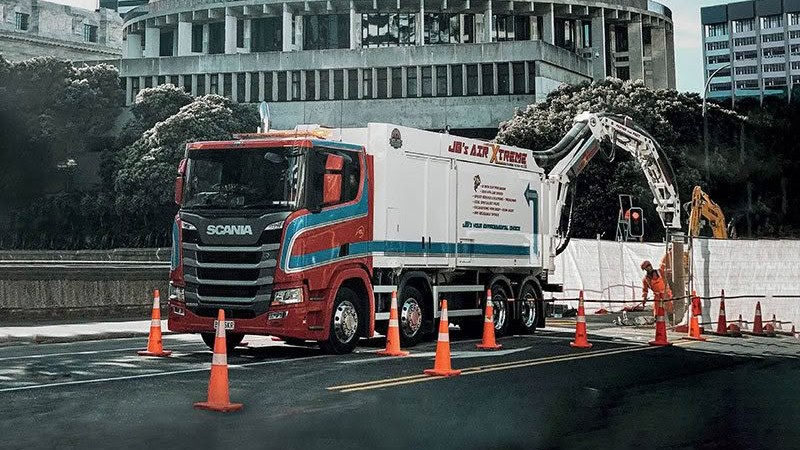
JB’s Environmental began life as one man and his dog 25 years ago; today, it supports close to 65 staff and their families.
In August 1999, John Matangi was working for a dairy company delivering town milk when he was called into the office and dismissed.
“I’ve always had a very strong personality, and I’ve never had any hesitation in saying what I thought. We had a new boss who had been there two weeks, and he didn’t like what I had to say. I was dismissed for not having enough rest period on my logbook – by 15 minutes. I never falsified my logbook because they always told me, ‘Put it in your logbook if you’ve got a good reason.’ This was the morning my second daughter Sara-Jay [known as Jimmy] was born. So that’s when I really had to grab the bull by the horns and run with that.”
Before being dismissed, John already had his water carts and septic tank truck set up with the intention to leave and give himself 110%.
“The reason I went for septic was purely about doing something that no one else really wanted to do. It was – and still is – hard work, and most people don’t have a palate for it. The water complemented it. The idea was when one was quiet, the other would take over, which really did work.”
John set up his own septic tank truck, piecing it together out of about three different trucks with the help of a few friends, and he was on the road for $14,000.
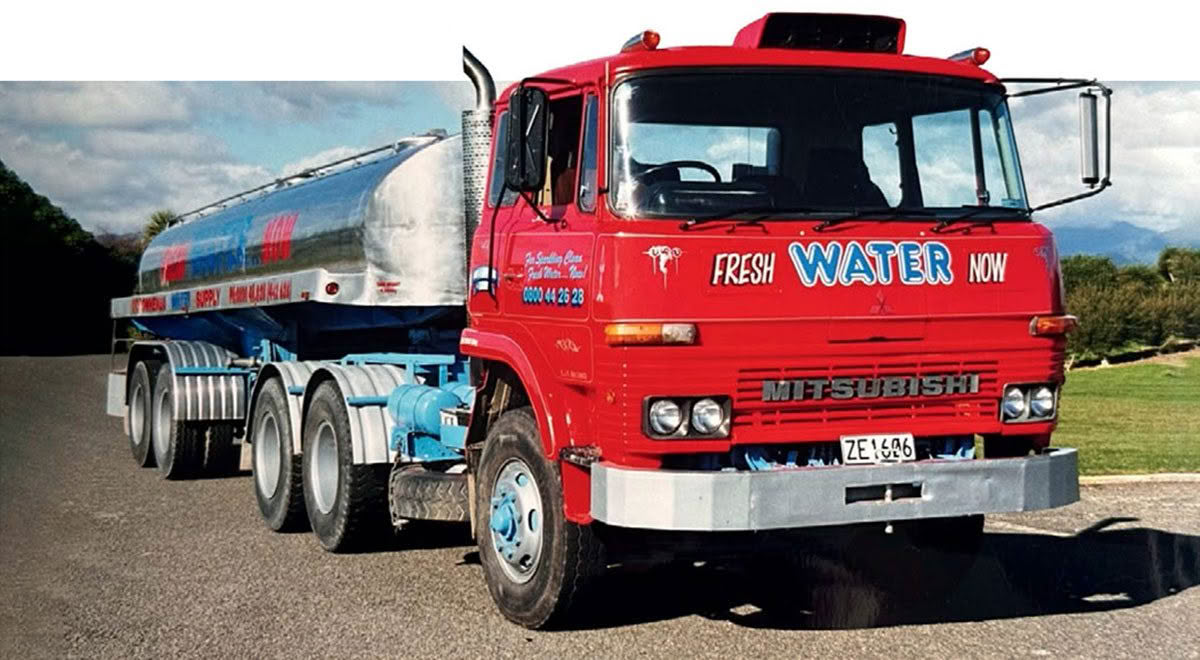
That first truck was a JCR Isuzu 4×2 with a 7000L tanker. The tanker was later swapped onto an FTR Isuzu with a six-speed gearbox.
The business was called JB’s – it stands for John Boy’s – because he wanted something short and easy to remember. “It was just me in the beginning and the business was so small I used to write the invoices by hand.”
Within 18 months, the business began gaining momentum and JB’s customer base grew. To satisfy customers’ requirements, he needed to grow his team and buy a second septic truck.
At this stage, JB’s was predominately involved with septic and water, but John’s operator ability and can-do attitude allowed him to evolve into other areas.
“I always answered the phone and turned up and just said, ‘Yes’. ‘No’ never featured in my vocabulary. It was really just about me saying, ‘Yes, I can do it.’ And then the same old story – you just figure out how you’re going to do it. We added more water tankers and we also had tippers and flat decks. We were carting silage, live chickens, timber – all local stuff – and we started doing firewood in 2004.”
Initially, JB’s was run from John and his wife Karen’s home, and the firewood yard was on the site of the former Kohitere Boys’ Home. As the business grew, he started looking for a larger site. In 2012, JB’s moved to a 6ha site with glasshouses previously owned by a garden nursery in Tararua Road, Levin. Some 3ha are concreted and 1.2ha undercover, which is not only perfect for drying firewood but also for storing equipment and undertaking maintenance. Today, to keep the fleet operational and the team working, JB’s does its mechanical work, detailing and signwriting inhouse.
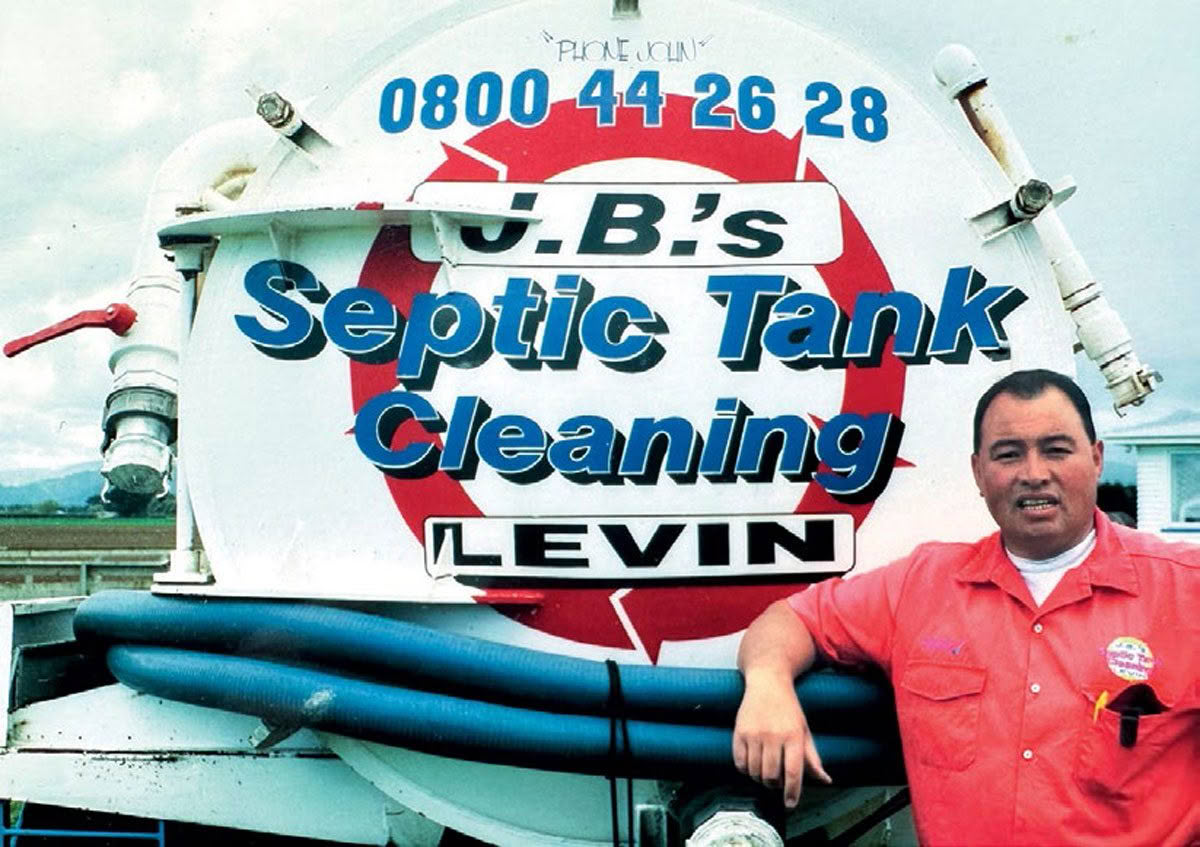
At this point, JB’s had a team of 15 but John was already looking to the future – in particular, large infrastructure projects in the region, including Transmission Gully and Mackays to Peka Peka and Peka Peka to Ōtaki.
“I anticipated the need and opportunities and got into it rather than just talking about it.”
John’s ability to answer the phone, say yes and turn up saw JB’s rapidly grow. Not only did the projects encompass the liquid waste, water and hydro excavation services, they also called for water carts (for dust suppression), hire equipment and an RE wall construction team.
“We started building GTSUKD in 2014, and it came on the road in 2016. That truck was $735,000, and I didn’t have a single job lined up for it. That’s backing yourself!” says John. “That truck has now done a lot of work, and it is still a fantastic, reliable machine. It’s never missed a beat.”
GTSUKD is based on a 460 Isuzu and was built by Kaiser Ag to John’s specification. “My bodybuilder, David Fitz from Kaiser Ag, has been building trucks for us for about 23 years. As I’ve grown and learned along the way, I’ve told him what I require, and with my practical experience and vision and his engineering knowledge and ability, we’ve built some absolutely fantastic trucks. I haven’t had a lemon – not one – from David at all; they’ve all been brilliant.” John invests heavily in industry-leading equipment and technology to ensure his business can take on specialist projects.
JB’s was involved in building Bridge 24 on Transmission Gully, completing the job only one day later than the scheduled deadline, despite delays holding up the start date by three months.
“We just worked our butts off; we just worked and worked and worked,” says John.
Moa Point was another major project for JB’s. “They knew nothing about us then, because we were mostly just operating in our own neighbourhood, and they were asking us where we came from. We had the best gear there, and our capacity and our turnaround times were a lot more efficient.”
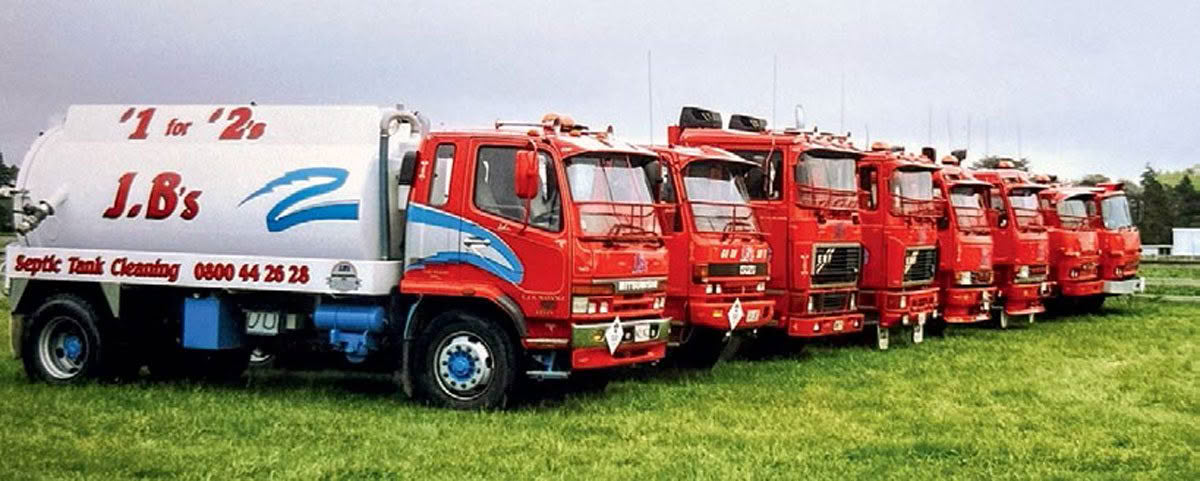
John’s wife, Karen, has been involved with the business from the start. In the early days, she did the office work, but the couple realised they needed outside help as their business grew. At this point, Karen’s main priority was raising the children.
“Karen was busy at that time being a stay-at-home mum because we were well on our way to having four kids, and I did place a lot of emphasis on putting the right energy into our kids.”
The Matangi children have always been actively involved in the business, from riding along in the trucks as kids and working in the school holidays to now being competent driver operators. “From the time Karen was still carrying them, they were riding around in the trucks. I’ve had customers that have seen me go from myself and my fox terrier, no kids, to four kids and a fox terrier!”
John says he’s always been a hands-on dad and often took his children out on jobs with him. Some of his proudest moments were working with four kids in tow. Once they were old enough to help, he paid them for their work.
Growing up, the kids had a firm understanding of the dedication, sacrifices and hard work that the growing business required. The Matangis often spent their time after school, in the weekends and holidays, working and hanging out as a family.
The children were encouraged to gain their truck licences so they could help out in the business. “My brother Charlie and I have our class 5 licences, and my sisters have up to their class 4s, and we all have our wheels, tracks and rollers, DGs and forklifts,” says daughter Jess. “Acquiring our licences was a given. It complements our ability to work and provides flexibility on where we can be scheduled, what we can operate.”
Jess returned home from boarding school when the country went into lockdown. “During lockdown, my sisters were home from university, and we were all together as a family for the first time in a long time. Being essential workers, we were still operating, and I realised whatever I wanted to be in life, I wanted to be essential. I could’ve gone to university and learned all the theory, or I could learn in a hands-on way.”
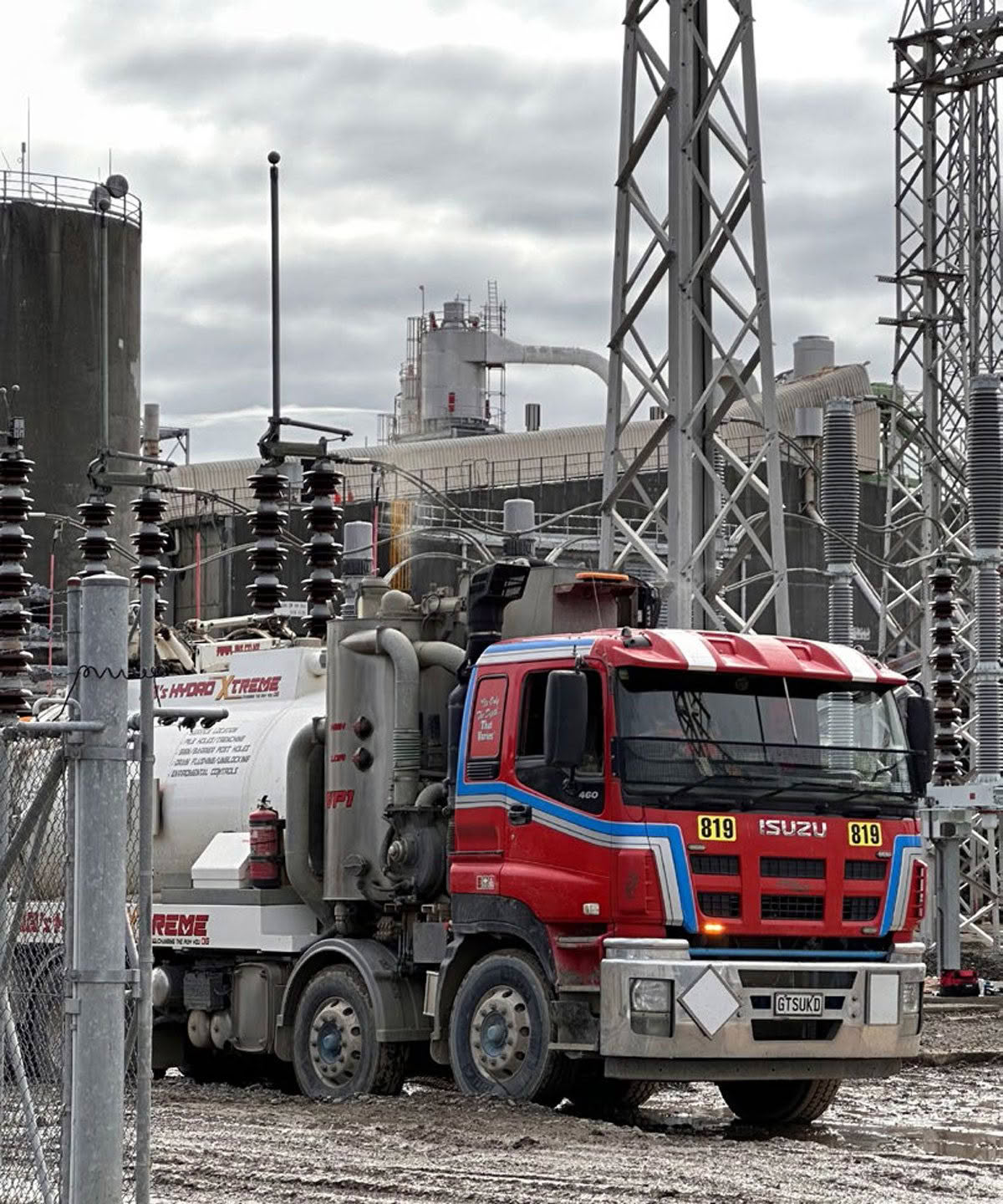
In 2020, Jess and Charlie joined the business full-time, departing high school early. Antonio is currently working with her partner’s company utilising her degree in marketing and management. Sara-Jay has recently graduated with a Bachelor of Laws and Bachelor of Arts and is currently working at a law firm in Queenstown.
Jess says there was a long time at school where she was just going through the motions because she had to. Fast-forward to today, and “I bounce out of bed and enjoy what I do. No day is ever the same. It’s a fast-paced work environment filled with a lot of great people I am able learn from.”
Charlie joined JB’s full-time as soon as he turned 16. Jess says her brother is a carbon copy of John. While Charlie was academic at school, he was itching to get to work.
“Charlie’s a little Dad when it comes to driver ability and competency. As he’s worked through his licences, we’ve seen him really grow into himself. He’s got a lot to offer as he gets older. When it comes to his operator ability, it’s definitely there. He’s out in the trucks daily and can cover off all aspects of whatever the requirements of the job are.” Charlie thrives on responsibility and thoroughly enjoys the people he meets and the different places the work takes him.
It’s hard to pigeonhole JB’s because it does not solely fall into the transport industry nor the construction industry.
“We’re in a specialist field in which we have skilled driver operators. Our guys can not only drive, but also operate the vacuum units in challenging conditions, which is a separate skill set with many different applications.
“Our industry is not easy. It’s physically demanding work and long hours, week after week. It’s an industry that never lets up. We are also a 24/7 emergency response operation.”
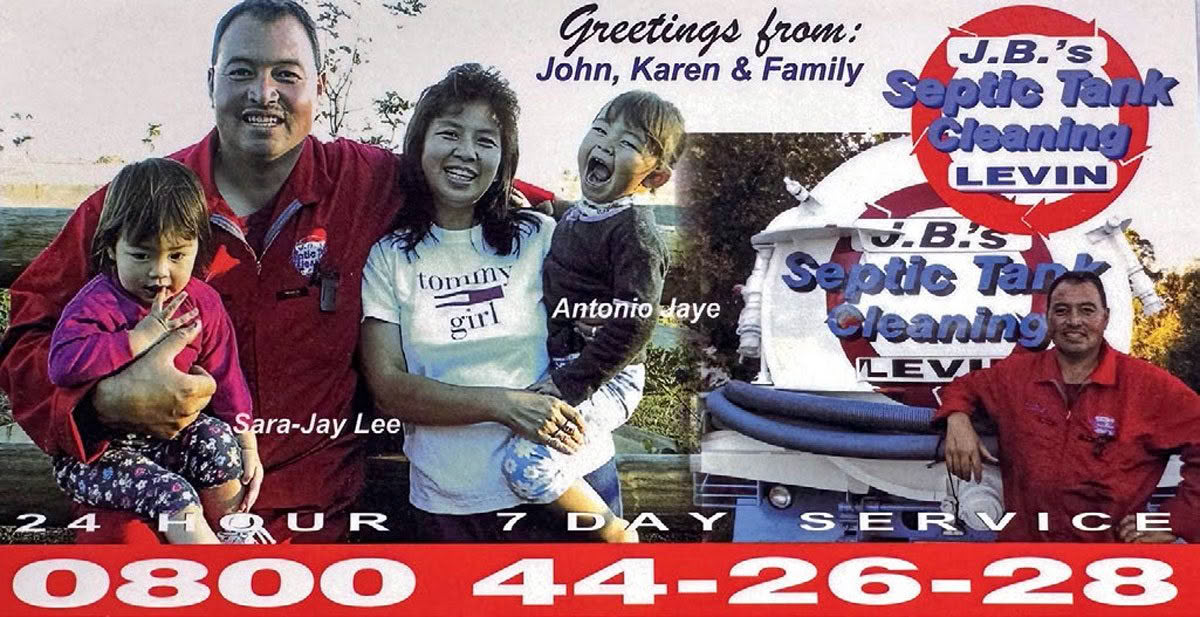
A family entity from the start: JB’s advertising card 2001 with daughters Antonio and Sara-Jay; the Matangis’ 2007 Christmas photo; Jess, JB, Antonio and Charlie onsite.
Together for the future
In preparation for the company’s 25th anniversary, Jess went through the photo album and realised how many of their employees were friends from way back.
“I found a lot of photos that date back to the friendships that Dad and Mum have built over the years. A lot of our team joined our family’s journey years ago and are part of the JB’s family today. Our retention rate is a testament to the solid foundation of good relationships, sharing the journey’s wins and offering rewarding remuneration.”
Today, JB’s is well on its way to having 25 hydro/air excavation trucks, five frontline septic tank trucks, three frontline domestic water carts, and many other items of specialised machinery that complement the business of hydro excavation, liquid waste and water. Most of the vacuum units are priced well over $1 million and are high- maintenance pieces of plant.
Jess says there are many reasons why JB’s has become the business it is today.
“In a nutshell, it’s because we have a fantastic team who turn up with the right attitude and skill sets to complete the job to a high standard. We have great management who answer the phone and say, ‘Yes’. It’s led with experience and enthusiasm, and we’ve got modern, industry- leading equipment that can complete the big jobs. I think this simple combination is what sets us apart.”
John says that his and operations manager Stephen Coombes’ combined years of experience mean they understand task timeframes, people’s abilities, equipment and any complexities that need to be taken into account, such as weather, traffic and the nature of the job.
“We know what it’s about. We don’t climb all over our guys, and we don’t tell them a job shouldn’t take that long, that they should be finished by now. Those words don’t exist in our vocabulary.”
Jess says they are more likely to ask their employees what help they need and offer troubleshooting methodologies.
“The important thing is that we don’t set them up to fail. We measure and match equipment, skill sets and competency levels to a particular job. We make sure we’ve got it right to ensure customer satisfaction is achieved.”
For years, JB’s has trained, upskilled and licensed its team, with a future focus on scaling its training programme to meet the growth of the business.
Stephen Coombes (Steveo) and driver operator Regan Roberts are two of many who trained, upskilled and gained their licences alongside John in the early days. “They have since returned and today are integral to the success of JB’s. Steveo fronting JB’s HydroCycle and securing and strategically scheduling the hydrovac works. Regan is flying the JB’s flag on site operating,” says Jess.
“More recently, we’ve trained two additional class 2 operators, four additional class 4 and one class 5. The goal is to get them on a pathway that not only gives them the skillset and competency level but also the tickets and wages that align with those,” she says.
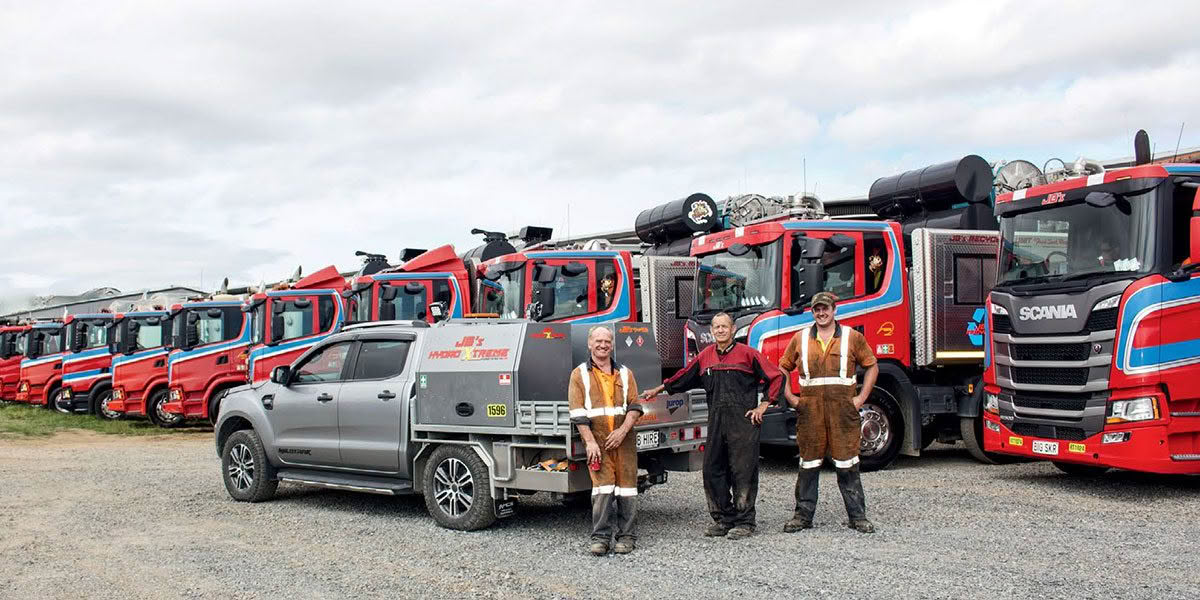
“One of the things that I truly believe in is to empower people to be on the journey with us,” says John. “We’ll be successful together.”
John is also keen to foster the next generation of operators by allowing his staff to take their children and partners with them in the trucks whenever possible.
“We really embrace it. I just say if they can get them onsite, just make sure they’ve got the correct PPE and follow onsite protocols.”
JB’s has also hired four South African drivers, and John tells the story of how they hired Abu Jappie, who has become a good family friend and a valued team member who drives MRMEGA – JB’s biggest hydro excavator.
“His wife rang me from South Africa. I was driving back from Hawke’s Bay about 10pm and kept getting calls from this foreign number. I’d hit ‘reject’, but whoever it was kept ringing back, so after the fourth time, I thought perhaps this person really does want to talk to me.
“Then this woman spoke and I could just hear the importance and the urgency in her voice. The family wanted to immigrate to New Zealand, and Abu was here, but he couldn’t get a job.”
John told Abu’s wife, ‘If Abu is everything you have told me, I will be sure to look after him.’
“Five minutes later, he was on the phone ringing me. I said, ‘Mate, you get down here and we’ll take the rest from there.’ The next day, Jess picked him up at 5am, and I told her to take him for a drive in the STLBUS and far out, could this guy drive!”
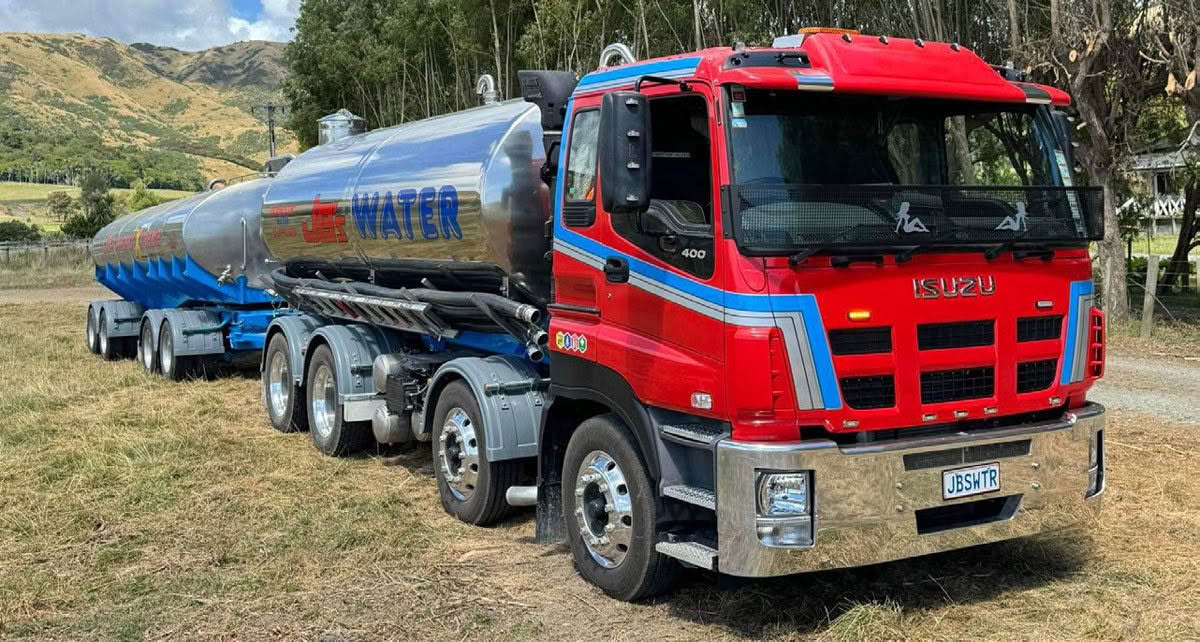
Jess says Abu was an excellent driver, very calm and proficient on the gear. This prompted JB’s to become an Immigration New Zealand-accredited employer.
This year, JB’s is introducing JB’s HydroCycle – Redefining Recycling. JB’s HydroCycle processing plant will recycle excavation spoil, reuse the graded aggregate and ultimately reduce volume to landfills.
The plants will be able to take wet or dry spoil from the excavators and separate out the various components such as aggregates, sand, spadable fines and water. Once operational, each plant will be able to process 100m3 per hour. They are introducing three plants into the region, the first of which will be operational very shortly.
“This is a game-changer for us. It will complement our daily operations; bring efficiencies to all projects and customers.”
Jess has huge respect for her parents and also longtime friend, Steveo, who is vital to the operational success of JB’s HydroXtreme.
“I see the commitment and sacrifices that are made. Whether Dad or Steveo are physically at work or not, they are still thinking about work and big- picture stuff. Furthermore, they have a team relying on them to turn up and get it right. That’s a large commitment. I think they make it look easy because they are experienced, enthusiastic and proud of what they do. I’ve still got a lot to learn, but I know where we’ve been, where we’re going and what we’re about.”
When he started JB’s 25 years ago, John didn’t envisage it growing into quite as large a business as it is today.
“At that time, I was more focused on survival and supporting my family, although I had the vision to be something bigger, brighter and better. As you evolve and you grow with your efforts and your company, you have a different appreciation and a different vision of where it is you can be, what you can attain. I learnt quickly that economies of scale and employing more people gave us great opportunities. I was always motivated by having good, clean, tidy gear, even if it was really old stuff. Did I think I was going to have 67 people? Maybe not 67; I would have definitely said yes to 20 to 30.”
John’s mission statement when he first started out was: “I intend to build long-term relationships with our clients based on my performance and the value of it to our clients’ requirements. My aim is to contribute value to our clients for the highest standard we set in the ultimate delivery of our service and customer satisfaction.” Today it is still the same.














